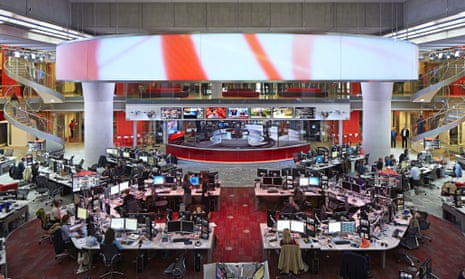Last week’s lengthy select committee report on the future of the BBC may have been the firing of the starting gun for the charter review debate, but it was more an air rifle than a bazooka. True, the headlines sounded pretty radical – no future for the licence fee, radical reappraisal of the BBC’s size and shape, 100% unconstrained access for the National Audit Office (NAO) to its accounts, and abolishing the “failed” BBC Trust.
Plenty there, you might think, to give Auntie an attack of the vapours. But the BBC’s response welcomed the report as a thorough and valuable contribution to the debate and thanked the committee for raising so many important issues. A remarkable compliment to a body chaired by a well-respected Thatcherite, John Whittingdale – who is nevertheless some way to the left of some of his Tory colleagues on a culture, media and sport committee where even the Labour ranks contain formidable critics of the BBC. But when you look a little closer you can perhaps begin to see why the BBC appeared so relaxed.
For a start the report commended it for its work on efficiency savings and maintaining such healthy audience performance in the face of significantly increased competition. Just hold that thought for a second – MPs’ committee praises BBC for efficiency. They were also highly critical of the government for the 2010 raid on the licence fee as part of the comprehensive spending review – when the fee was frozen at £145.50 and £700m was reallocated to funding S4C, the World Service, broadband rollout and more. These parts of the report could have been written by the BBC.
On scope and scale the committee was critical of the BBC’s stance that in order to appeal universally it must do virtually everything it currently does. But as there was no clear steer as to what it should consider not doing, that leaves that ball where the BBC wants it – in its own court.
Then take the much-quoted line about the licence fee having “no long-term future”. “Long-term” is the key word, since the committee accepts that for the next 10 years at least the licence fee remains probably the best way of funding the BBC – and then their preferred alternative is another universal levy to be paid by all households. This method – recently introduced in Germany – may or may not be better than the current licence fee but the key point is the acceptance of the principle of universality, which again will have left the BBC with something of a warm glow. The committee’s argument that changing patterns of consumption render the licence fee untenable in the longer term is at best arguable – and anyway doesn’t seriously have to be addressed now.
On the subject of BBC governance even the rather eye-catching headline, “The trust is bust”, is perhaps less threatening than it might at first appear – especially to senior BBC managers, if not to the BBC Trust itself. The committee’s suggested replacement system – a unitary, PLC-style board, with a majority of non-executive directors, to run and govern the BBC, and a separate Public Service Broadcasting Commission (PSBC) to oversee strategy and regulation – might even be favoured by many senior BBC executives who would quite like the trust (with its detailed accountability procedures) to get out of their hair.
Confusingly, though, the committee applauds some of the accountability processes introduced and policed by the trust, but without saying clearly where those processes – service licences, public value tests for new or changed services – would sit in their new structure.
In short, almost everything recommended is either already broadly acceptable to at least sections of the BBC or, the BBC believes, can be dealt with (or negotiated away) in the course of the 18-month charter review debate. Provided, that is, the committee’s findings represent anything like the political consensus that emerges post-election.
It is here that the BBC faces probably its biggest challenge. Because the one thing MPs’ committees tend to have no time or feeling for is the health and welfare of the BBC’s key asset – its independence. Their suggestion that the NAO be guaranteed untrammelled access to the BBC’s books, that the new government-appointed PSBC should be able to withhold money from it in certain circumstances, that there should be lots more public value tests – all illustrate a basic political instinct: to try to bring the BBC to heel. And it is on these issues – independence and creative/editorial autonomy – that the real battle for the BBC’s future will be fought.
